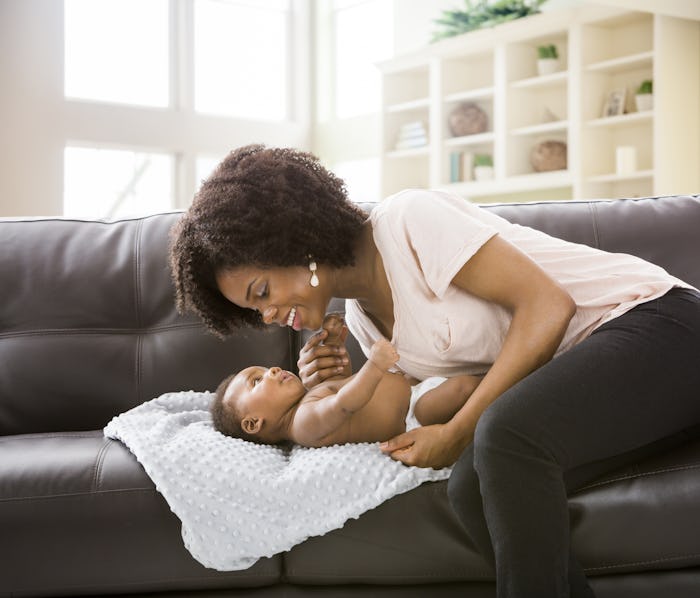There's something about babies, with their adorable toes and their (sometimes) sweet smell, that can make even the toughest grown-up melt into a pile of babbling flesh. Try as you might, these tiny humans can put a spell on you that makes you forget every English word you know and speak in cutesy, high-pitched babble instead. But whether you find it absolutely adorable or totally annoying, before you begin to go ga ga over your new baby, you should know exactly how baby talk affects your kid later in life.
Making up nonsensical words isn't going to add any points to your child's SAT score, but there is evidence that regular "baby talk" conversations with your little one has some benefits, including holding his attention. According to NY Metro Parents, infants enjoy the exaggerated facial expressions that often accompany baby talk. And once you've got his attention, the slower, more deliberate speech you use in "baby talk" helps him understand basic words and sounds. As Today's Parent mentioned, exaggerating your consonant and vowel sounds can help your baby recognize the difference between them.
Although you may feel ridiculous in the moment, "baby talk" can play a positive role in your child's speech development. So keep chatting. All of that baby talk is helping your child build an incredible vocabulary that they'll use to talk back to you in their teen years.
1They'll Be Chatty
If you speak to your child in "baby talk," regularly she will reply. And while it may sound like just a bunch of baby babble now, it will soon begin to make more sense. Today's Parent referenced a study by researchers at the University of Washington and the University of Connecticut which found that babies whose parents held "baby talk" conversations with them knew more words by age two.
2They'll Feel Important
Even if you don't understand a word of what your baby is saying during your "baby talk" conversations, it is important to acknowledge their attempts at communicating by smiling and talking back. As WebMD mentioned, responding to your baby's speech tells her that what she's trying to communicate is important.
3They'll Be Ready To Read
Developing language skills early on can help your child be more prepared for school later on. According to researchers at the University of North Carolina, children who have strong communication skills are less likely to have trouble learning to read.
